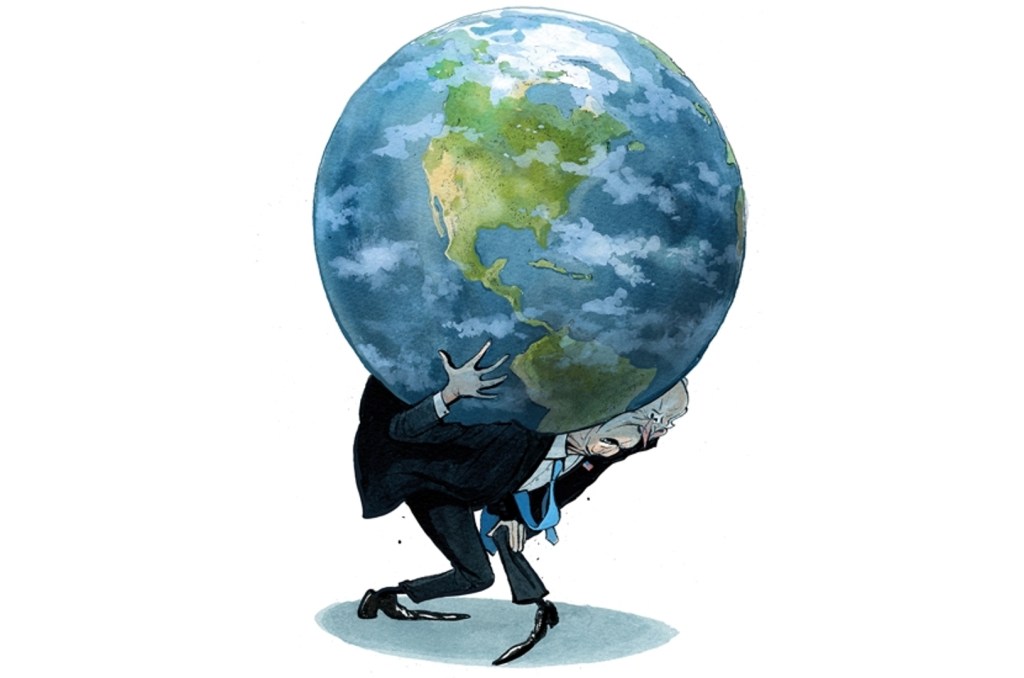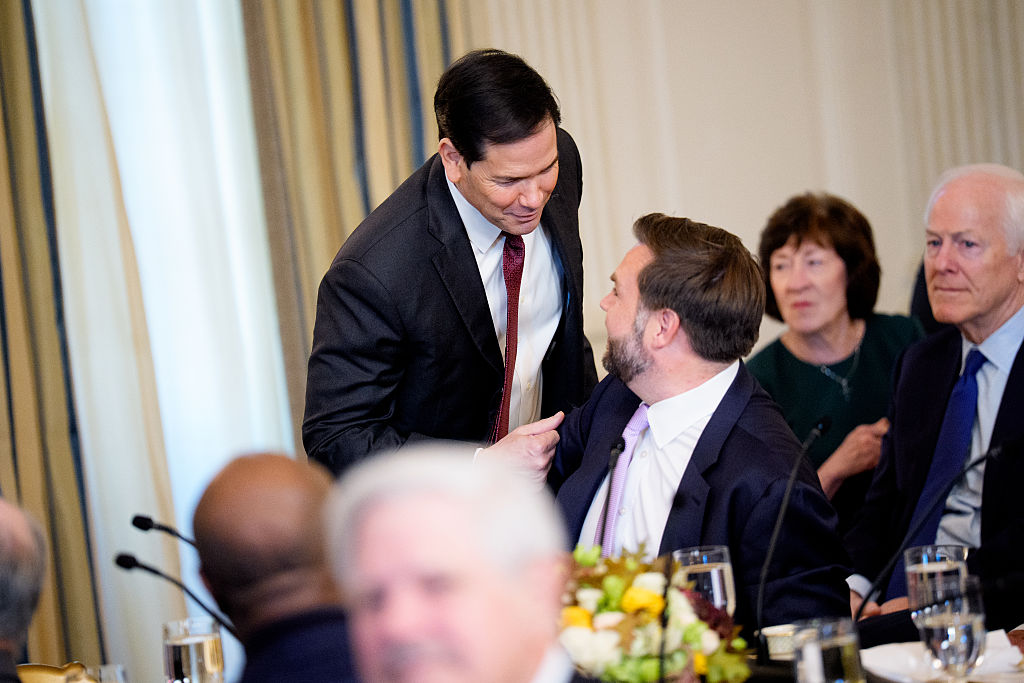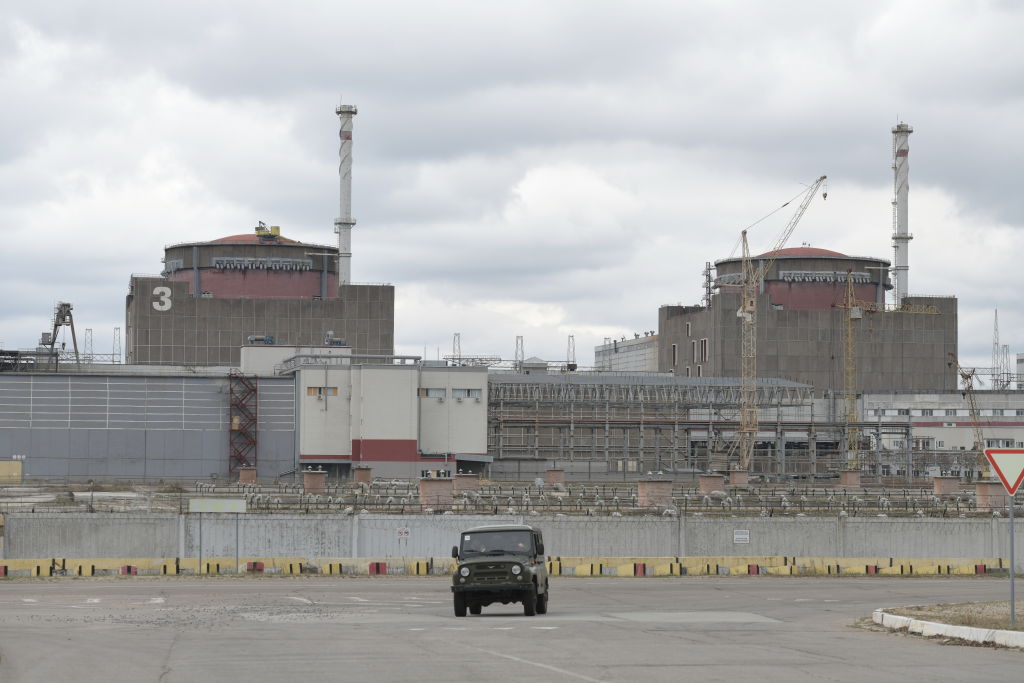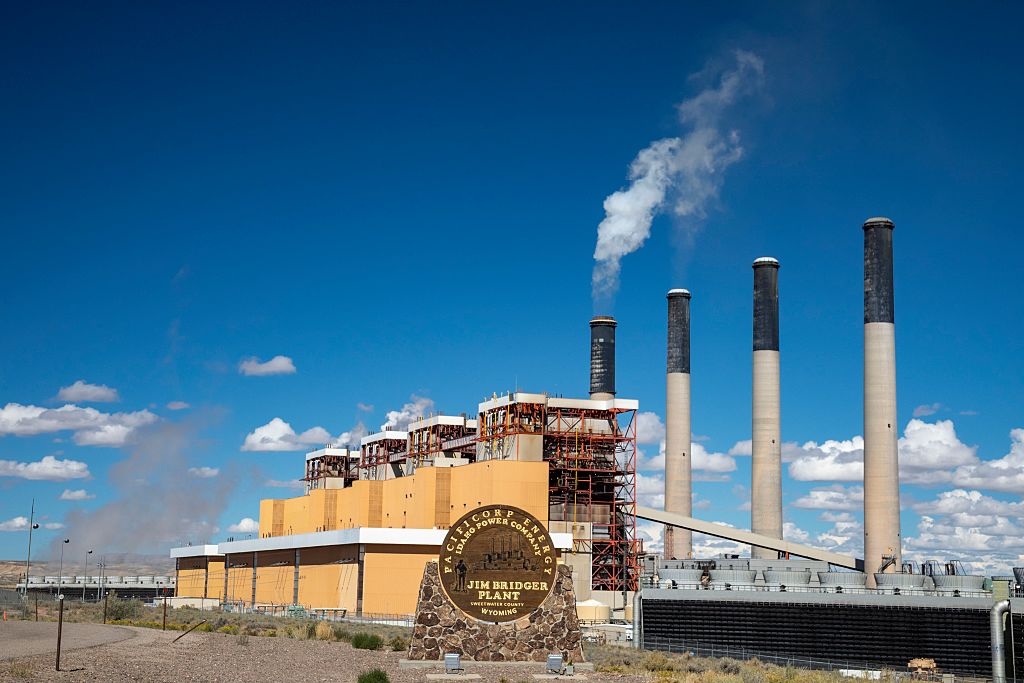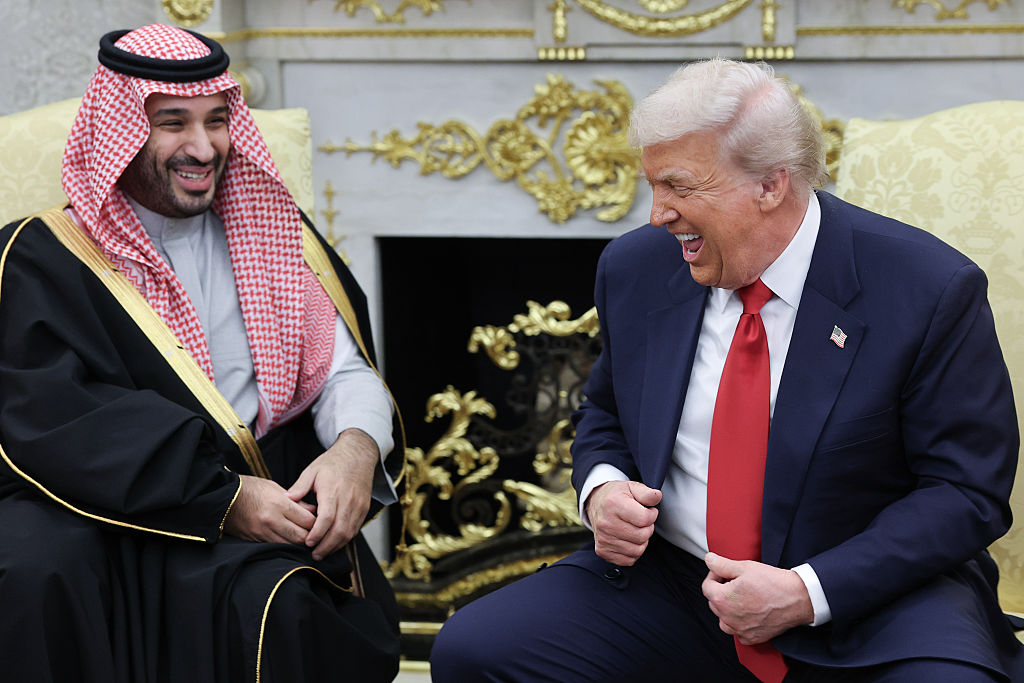President Joe Biden is set for his rendezvous with climate destiny at the Scottish Event Campus in Glasgow on Monday. The president left Washington on Thursday empty-handed after congressional Democrats abandoned an attempt to put his infrastructure and climate package to a vote. “I need you to help me. I need your votes,” Biden implored them. “I don’t think it’s hyperbole to say that the House and Senate majorities and my presidency will be determined by what happens in the next week.”
At least he wasn’t invoking anything as serious as the future of the planet to get their backing. Nancy Pelosi weighed in, according to Politico’s Laura Barrón-López, telling her colleagues that overseas parliamentary leaders had asked whether American democracy can survive. “When the president gets off that plane we want him to have a vote of confidence from this Congress.” No vote is better than a vote of no confidence, but not by much.
In the election last year, Biden promised that as president, America would lead the world in the fight against climate change. He can hardly say that when he addresses the Glasgow climate conference next week. There’s plenty more he won’t be telling the conference. According to the United Nations Environment Program in its Emissions Gap Report 2021, ten of the G20 members are on track to meet their first round Nationally Determined Contributions required under the Paris climate agreement, while the United States is one of six countries UNEP says will miss theirs and need stronger policies to achieve its emissions target.
Neither will the president be anxious to tell Americans what UNEP reckons is required of them if he wants any chance of getting his climate and infrastructure bill passed by Congress. Around two-thirds of global greenhouse gas emissions are linked to private household activities. “Reducing emissions through lifestyle changes requires changing both broader systemic conditions and individual actions,” UNEP decreed in its 2020 report. “COVID-19 has provided insight into how rapid lifestyle changes can be brought about by governments.”
Joe Biden isn’t the only one with a credibility problem. A big question mark hangs over the UN climate talks. Its ostensible purpose is to prevent dangerous anthropogenic interference in the climate system by cutting greenhouse gas emissions. Three months before the Paris climate conference, in September 2015, the level of carbon dioxide in the atmosphere was 297.43 parts per million. Last month, there were 412.90 parts per million. Despite COVID lockdowns and the unprecedented 5.4 percent decline in global carbon dioxide emissions last year, the concentration of carbon dioxide in the atmosphere grew by around 2.3 parts per million, in line with recent trends.
There is, however, some welcome news which will be sure to get no airing in Glasgow. Despite more carbon dioxide being pumped into the atmosphere, so far this year, average global temperature as measured and estimated by the UK’s Met Office and the University of East Anglia’s Climatic Research Unit is lower than it was in 2015. Relative to a 1961-1990 reference period, the global temperature anomaly this year is 0.737 degrees centigrade compared to 0.825 degrees centigrade in 2015. Indeed, 2021 is on course to be the coolest year since 2014. Who knows, perhaps the rise in global temperature will remain within the two degrees centigrade limit set out in the Paris agreement without any help from the United Nations.
With Britain having the presidency of this year’s UN conference, Boris Johnson has staked the success of next week’s climate summit on reaching agreement among all the countries of the world to phase out coal. It’s something he shouldn’t have asked for.
In its new NDC, China — the world’s largest carbon dioxide emitter and burner of 50 percent of the world’s coal output — makes clear that it will continue to rely of coal. “China, a country rich in coal and poor in oil or gas, is currently in a critical period of transforming growth model,” its NDC states. “With the continuation of industrialization and urbanization, energy demand will keep rising while it is unlikely to fundamentally change the coal-dominated energy mix in the short term.”
The leadership of the Chinese Communist party observed with horror the collapse of the Soviet bloc because it failed as an economic system. It will not take any risks with China’s economy for the sake of saving the planet.
At the same time, the fashion for net zero among the politicians of the West presents it with a strategic opportunity. Net zero weakens their economies and induces its elites to take their eye off the geostrategic ball. China’s climate pledges are therefore calibrated as the bare minimum needed to keep the UN climate show on the road and enable western politicians to keep digging with their net zero policies.
Arriving in Glasgow with nothing to show for his own climate pledge, Joe Biden is in no position to call out China’s growing contribution to global greenhouse gas emissions. In this way, Beijing has found a true ally in Joe Biden.
Rupert Darwall is a senior fellow of the RealClear Foundation and author of Green Tyranny: Exposing the Totalitarian Roots of the Climate Industrial Complex.



